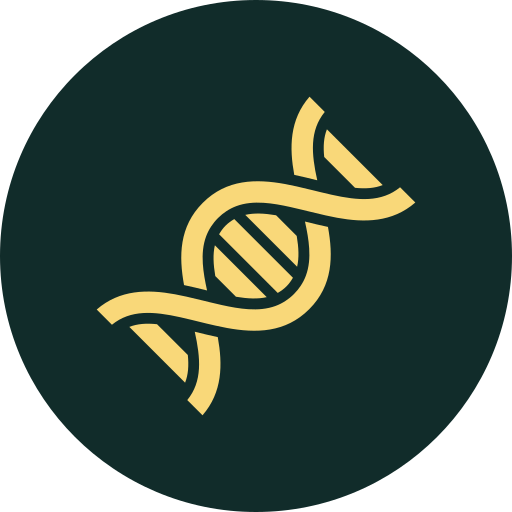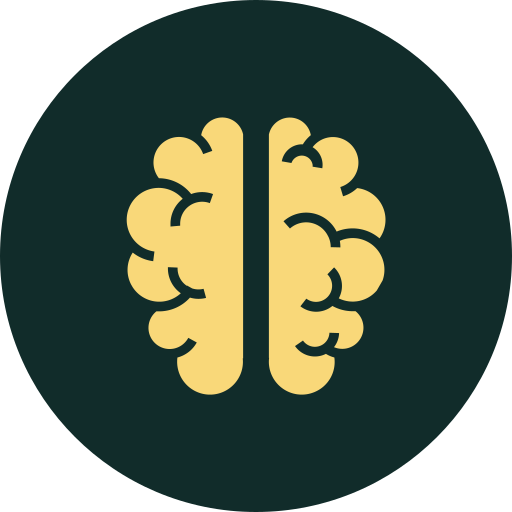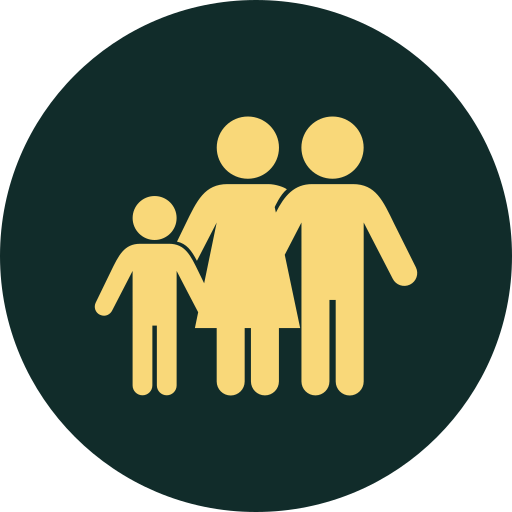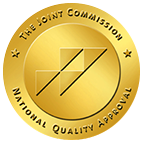Am I An Addict?
Addiction Self-Test

Take Our Addiction Self-Test
Did you know that almost half of all Americans have either a friend or family member who’s addicted to drugs?
Addiction is a common problem, not just in the US but around the world. It’s a serious condition that should be treated medically by a professional, but it isn’t always as easy to spot as you might think.
If you think you or someone you love may be suffering from addiction, it’s important you take our Am I an addict? quiz to find out. It’s also vital you learn more about addiction so that you can understand the causes, signs, and treatments of addiction.
Read on to grow your knowledge and help yourself or your loved ones.
This online screening is not a diagnostic tool. Only a trained medical professional, like a doctor or behavioral health professional, can help you determine the best treatment for you.
What Is Addiction?
Addiction is a chronic medical disease and something that should always be taken seriously. Seeing it as a medical issue can help you gain a better understanding of how to deal with it, and see it more realistically. Addiction isn’t a temporary problem but a serious condition that requires help in the same way that any physical disease would.
It’s also very complex. How likely someone is to suffer from addiction can be affected by a whole host of factors, including how their brain is hardwired and their genetics.
The Difference Between Addiction, Dependence & Abuse
If you’re wondering, am I an addict? you need to have a clear idea of what addiction is. There are two other terms that are similar to addiction but not quite the same. Learning these will help you differentiate between conditions and paint a better picture of what you may be dealing with.
Dependence
Dependence is similar to addiction, but not quite the same. When someone is dependent on drugs or alcohol, they have the physical need for the substance, but it doesn’t cover the full spectrum of what addiction is – though it is a symptom. Dependence can lead to feelings of withdrawal, but it doesn’t always have the mental issues people associate with addiction.
Substance Abuse
Substance abuse is very different from both dependence and addiction. It’s not a physical or mental condition, and most people will abuse a substance at some point in their life without becoming addicted or dependent. Substance abuse is simply using more of a substance – like alcohol – than recommended.
In the US, moderate drinking is limited to 2 alcoholic drinks a day for men, and one for women. If you have four or more, it’s described as heavy drinking and therefore substance abuse. But most people will have had more than four drinks in a day at some point in their life!
Substance abuse doesn’t have to be a habit, although it can lead to dependence.
Addiction
So, what sets addiction apart? How is it different from dependence?
While addiction often has the symptoms of dependence, it also involves a mental response to substance abuse that makes it harder for individuals to stop using.
Some people who develop dependence might not have a problem stopping, even if they do so independently. Addiction needs professional help and is a chronic illness. Sufferers may need lifelong support to prevent relapse, which isn’t always the case with dependency or substance abuse.
Addiction is also often linked to behavioral health issues, while dependency and substance abuse are less so.
How Much of a Problem is Addiction in America?
In America, around 21 million people have at least one addiction, making it a very prevalent problem. The use of opioids, in particular, has been one of concern over the years as individuals become addicted to prescription drugs and then turn to drug dealers to continue fueling the addiction when their prescription ends. The rise in the problem has led to a tripling of deaths due to drug overdoses since 1990.
Addiction is also widely linked to behavioral health issues, which are on the rise. Around 30% of people who have a mental illness also suffered from a substance misuse disorder or addiction in 2020. As the number of people struggling with their behavioral health grows, it’s likely that the number of those suffering from addiction will too.
But, there is more understanding around addictive behaviors and what causes people to suffer from addiction. There’s also a wider range of addiction treatment available, and more empathy around the topic to help those in recovery.
What Causes Addiction?
There isn’t just one, straightforward reason why people suffer from addiction. This complex disease can be multi-layered and some people may never know exactly why they’re suffering from addiction. In truth, some individuals are just born in a way that makes them more likely to become addicted.
If you’re wondering why you or someone you know is suffering, here are the four major causes:

Your Genetics
The links between genetics and addiction are still being studied constantly. However, it does seem as though the genes you’re born with can make you naturally predisposed to become addicted to substances. Researchers are currently on the hunt for an addiction gene, but for now, it remains hidden if there is one.
There are also some patterns of behavior seen in the addictions of men and women. Different things, such as the rate they become addicted and the rate of relapse, seem to be different between the genders, which again could be down to genetics.

Your Environment
Nature versus nurture is all too relevant in matters of addiction. While it could be genetics at play, it could also be the environment that children are raised in that leads to addiction. For example, children of parents who suffer from addiction are more likely to suffer themselves – but is that because of genetics or the normalization of use by the parent?
If you’re raised in an environment where substance abuse is common, you may associate it with the fun of partying. You may link drugs and alcohol to happiness or think it’s a normal way to have fun, leading to addiction.
Children may also have more unstable childhoods if addiction is present in the home. This can lead to them developing mental illnesses, which in turn lead to using substances as a coping mechanism.

Your Brain and Body
Our brain and body are naturally built to become addicted to certain substances. This is because of a chemical substance known as dopamine, which drugs can cause to be released in your body. If you continue using the drug, your body produces less dopamine naturally and so begins physical dependency.
You need to continue using to continue feeling that hit of dopamine that keeps you happy and floating above the water. Your natural systems have been switched off, and drugs become the replacement. That’s the science behind addiction.

Your Support Systems
The final major cause of addiction is support systems and addiction treatment. Sometimes, these two things can prevent people from being able to overcome addiction and lead them down a vicious cycle.
People who have strained relationships with their loved ones and therefore no support system can often turn to drugs to cope. Others may have tried to seek treatment for recovery but have bad experiences, such as uncontrolled withdrawal leading to trauma, which can increase the chance of relapse and prevent them from seeking help again.
What Are the Signs of Addiction?
There are many signs of addiction, and if you or a loved one may be suffering it’s vital you know what they are. Here are some of the most common signs of addiction.
Inability to Stop Using
If you’ve tried to stop using a substance but failed to do so, you may be addicted. Those suffering from addiction will often find the desire for the substance outweighs the desire not to use it, which is a dangerous path to be on.
Cravings for the Substance
Have you ever found it difficult not to think about how much you want the substance? Cravings are a very typical sign of addiction once the effects have worn off. If you’re looking forward to or itching for your next use, you should look into whether you’re addicted.
These cravings are often amplified by triggers, it’s good to note. For example, you may find that stressful situations cause strong emotions around the substance, making it harder to stay away.
Increasing Usage
If you’re using more of the substance than you would have done when you were first using it, you may be on the path to addiction or already addicted. Increased usage can include more frequent use or larger doses. If you find you need more of the substance to feel the same effect, it’s also a sign that you could be becoming dependent.
Prioritization of the Substance
Sufferers of addiction will prioritize the drug over all else in their life. You might lose sight of the activities, people, and events that once made you happy, choosing instead to seek the substance. You may put acquiring the substance before financial worries, family issues, and your own safety.
This is a clear sign of addiction and you should seek professional help as soon as possible.
Withdrawal From Social Activities
If you’re worried about someone else you think is suffering from addiction, withdrawal from activities and social life is a common sign. If the individual doesn’t show up to events and seems to become reclusive, along with other signs of addiction, it could be time to step in and find help.
Failing to Take Part in Everyday Life and Routines
Those who are suffering from addiction often fail to live a normal daily life. They may stop caring about their personal hygiene or feeding themself, might stop turning up for work and other responsibilities they have, and can have very odd sleep patterns.
However, it is important to note that this isn’t always the case. Some people who are suffering may seem to be living a perfectly normal life from the outside. Just because they are well-groomed and going to work doesn’t mean you shouldn’t be worried if there are other signs.
How Does Addiction Affect Physical Health?
Addiction is closely linked with behavioral health, but what about physical health?
Over time, substances like drugs and alcohol can wreak havoc on people’s bodies. The physical damage from addiction is a huge risk to their health, and can often become fatal if untreated.
There are a multitude of different ways addiction can affect physical health. Here are just some of the more common side-effects:
- Heart conditions ranging from fast or slow heart rates to heart attacks
- Blood vessel infections and collapsed veins from injected drugs
- Bad abdominal pain and sickness that can lead to appetite changes
- A weak immune system that increases the chance of illness
- Seizures
- Strokes
- Brain damage
- Memory problems
- Lung disease
These are just some of the many effects that substance abuse disorders can have on the body, and they show how serious it is to get help if you or a loved one is suffering. The longer addiction goes without treatment, the worse these symptoms will get and the higher chance there is of a fatality.
It’s also wise to remember that overdoses can cause a range of health problems, including irreparable organ failure and brain damage.
Getting Help
If you’re wondering “am I an addict?” then you should take our quiz to learn more. However, it is vital that anyone suffering from addiction seeks help from a medical professional to diagnose the illness and prescribe the right help. That’s where our team comes in.
At New Method Wellness, we have a range of treatment programs to aid in addiction recovery. Get in touch with us today to find out more and let’s get your life back on track together.
Related Topics
Our Services
Clinically Reviewed By:
Deanna J. Crosby, M.A., LMFT, LAADC, Psy.D. (C)
Deanna Crosby is a Licensed Marriage and Family Therapist (LMFT) with over 20 years of experience working with clients in recovery. Her expertise has catapulted her into the spotlight. Featured on several episodes of the Dr. Phil Show as a behavioral health expert, DeAnna is a routine contributor for NBC News, The Huffington Post, Elle Magazine, MSN, Fox News, Yahoo, Glamour, Today, and several other prominent media outlets.
After receiving her bachelor’s degree from the University of California in Irvine, Crosby did postgraduate work at Centaur University where she graduated at the top of her class with a CAADAC certification in Centaur’s chemical dependency program. Following her time at Centaur, Crosby received her Master of Counseling Psychology degree from Pacifica Graduate Institute, where she also attained a Doctoral Degree in Depth Psychology.
TAKE THE FIRST STEP
From all of us at New Method Wellness co-occurring treatment center, we wish you peace and serenity in knowing that you or your loved one will get the necessary help.
ACCREDITED BY:


